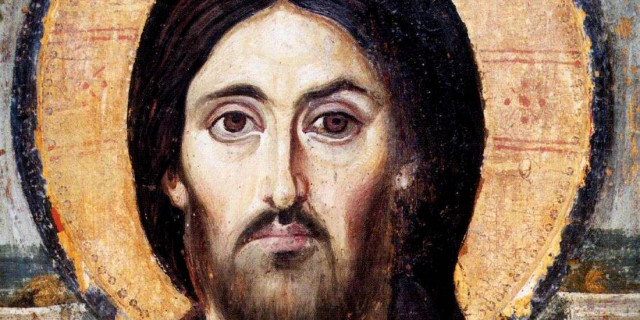Join our Director of Studies, Dr Louise Nelstrop for this four week intensive course exploring how the person of Jesus has been understood across history. We will explore treatments of Jesus from the early Church to the modern day, including representations of Jesus in film and the arts.
The purpose of this course is twofold:
- To explore historical discussions concerning who Jesus is (Christology)
- To consider Christian thinking on how Jesus effects salvation (Soteriology)
As Alister E. McGrath notes in Theology: The Basics: ‘One of the most basic tasks of Christian theology is to clarify the identity and significance of Jesus Christ.’ In terms of the former, he points out that Christians have always stressed that Jesus is special in ways that mean he is ‘set apart’ and ‘qualitatively different’ from other human beings. He is not just a teacher. The study of Jesus’ identity is formally known as ‘Christology’, which McGrath helpfully defines as ‘trying to make sense of Jesus’. The second issue, Jesus’ significance, relates to a second area of theology, ‘Soteriology’, which McGrath helpfully defines as ‘making sense of salvation’. It is clear that that the two ideas are closely related.
Indeed, as this course will explore, discussion of Jesus’ identity in the New Testament and in early Christian debates is fuelled by concerns relating to salvation. Looking at discussions from the Bible onwards, students will follow the development of these two key areas of doctrine across history and consider the relationship between them.
Each week is divided into two teaching blocks, and over the course of these 8 sessions, students will carefully explore how Jesus has been understood within and outside Christian traditions across history. While it will not be possible to consider all the different approaches to and understandings of Jesus that have existed across history, this four week course plots a historical route through discussions of who Jesus is and how he effects salvation.
Course Outline
Week 1: Jesus in the Bible and Apocryphal Literature
Week 2: Debate about Jesus’s Humanity and Divinity in the Early Church
Week 3: The Necessity of the Incarnation
Week 4: The Quest for the Historical Jesus and Jesus in the Arts
Pre-course and Weekly Reading
A reasonable amount of reading will be made available online to students for each session.
Dates: Thursday afternoons, 7th–28th October 2020, 2:00pm to 5.30pm. Followed by optional evening liturgy also online at 6pm
Course Leader: Dr Louise Nelstrop
Cost: £180
This course is online.





